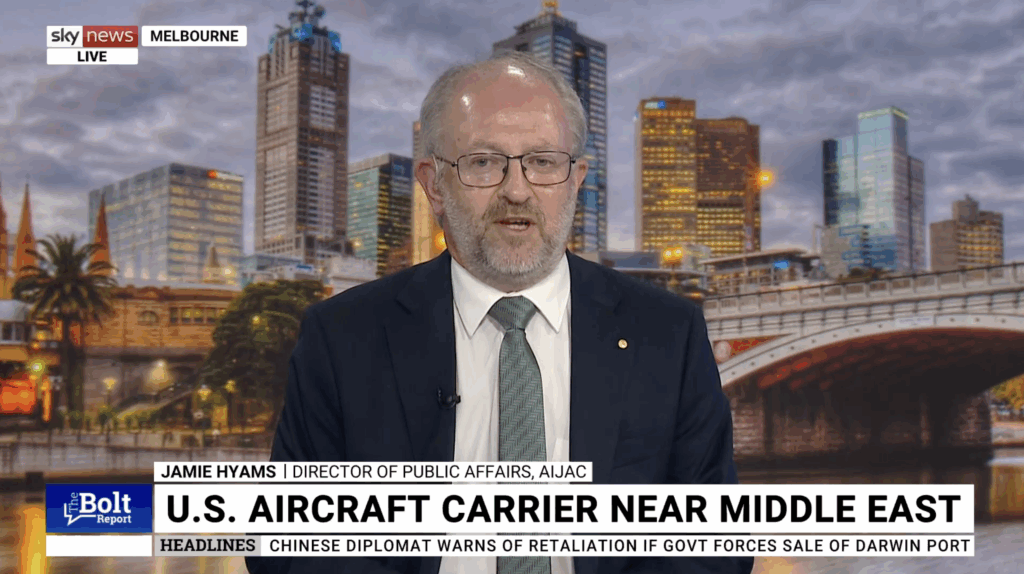UPDATES
Scarjo stands up for SodaStream’s Palestinian workers
January 31, 2014 | Daniel Meyerowitz-Katz

Daniel Meyerowitz-Katz
It is not unusual for Superbowl advertisements to spark controversy in America and around the world. This year, before it has even gone to air, an advert for SodaStream starring Scarlett “Scarjo” Johansson has caused considerable hysteria.
What is less usual about this incident is that it was not the content of the advert that was at issue (although it did have to be altered slightly in order to avoid insulting Coke and Pepsi). Instead, the outrage was generated by no more than the company that Johansson chose to promote.
Ordinarily, a leading Hollywood actress appearing in a Superbowl advertisement to promote a company that sells machines to carbonate water would seem unremarkable. SodaStream, however, happens to be Israeli. Even worse, SodaStream runs a factory in Mishor Adumim, an Israeli industrial area in the West Bank beside the large neighbourhood of Ma’ale Adumim. As a result, its affiliation with Johansson has sparked outrage amongst those who oppose Israeli companies on principle. (Note: whilst Ma’ale Adumim has been included inside Israel in all serious peace proposals, Israel’s presence there remains a vexed issue which has been extensively canvassed elsewhere — see, eg, here, here, and here.)
After the BDS activists were riled up, it did not take long for Johansson’s position as an ambassador for global charity Oxfam to be thrown into the spotlight. Oxfam itself was hesitant to take a firm position on the issue — presumably to avoid harming its fundraising prospects. Nevertheless, it released a statement saying that whilst it “respects the independence of our ambassadors,” it:
believes that businesses that operate in settlements further the ongoing poverty and denial of rights of the Palestinian communities that we work to support. Oxfam is opposed to all trade from Israeli settlements, which are illegal under international law.
Oxfam also mentioned that it had “made [its] concerns known to Ms Johansson” and was “now engaged in a dialogue on these important issues”. Presumably, Oxfam intended to nudge Johansson into ending her relationship with SodaStream. It must have come as some surprise when she instead chose to end her relationship with Oxfam. As Brendan O’Neill put it:
What’s not to love about this story? A worthy charity shakes its big head in disapproval at a celeb who has dared to do things for a company that works in Israeli settlements in the West Bank, no doubt expecting the celeb to freak out, issue a tear-drenched apology and promise never again to rub shoulders, or anything else, with these evil Israelis. But instead the celeb basically tells the worthy charity to get stuffed and says she will carry on working with and promoting the Israeli company.
Contrary to what some anti-Israel activists might argue, Johansson did not choose to keep working with SodaStream out of contempt for Palestinians. In fact, a few days before stepping down from Oxfam, she had explained her refusal to bow to the anti-SodaStream pressure by noting that:
SodaStream is a company that is not only committed to the environment but to building a bridge to peace between Israel and Palestine, supporting neighbours working alongside each other, receiving equal pay, equal benefits and equal rights. That is what is happening in their Ma’ale Adumim factory every working day.
In light of this, Oxfam’s claim that “businesses that operate in settlements further the ongoing poverty and denial of rights of the Palestinian communities” and its opposition to “all trade from Israeli settlements” warrants some scrutiny. After all, SodaStream could not possibly be building a “bridge to peace between Israel and Palestine” whilst also furthering poverty and denying the rights of Palestinians.
Given the BDS movement’s track record, it should come as no surprise that the truth is much closer to Johansson’s version of events. Forcing SodaStream to close the controversial factory would not help alleviate the poverty of West Bank Palestinians, but would clearly exacerbate it.
The real victims of BDS
SodaStream is a large company with an international production and distribution network. The factory in Mishor Adumim is just one of 25 such factories that the company operates around the world. In that factory, 500 of the 1300 employees are Palestinians from the West Bank. As the Christian Science Monitor‘s Christa Case Bryant explains, the main reason for their working there is for the Israeli wages:
Per capita GDP in Israel is more than 10 times that of Palestinians, while Palestinian unemployment (23 percent) is more than triple the Israeli rate (7 percent), according to figures provided to the Monitor by the Manufacturers Association of Israel.
That has prompted about 69,000 Palestinian workers – 10 percent of the Palestinian labor force – to work in the Israeli economy, where those who manage to secure a permit or risk working illegally earn an average daily wage of 164 shekels ($47), compared to 84 shekels ($24) in the PA economy.
As Bryant goes on to demonstrate, the SodaStream factory is particularly attractive as a workplace for West Bank Palestinians. Its location east of Jerusalem means much shorter travel times than companies located in Israel’s industrial centres, and whilst there is a problem with some Mishor Adumim-based companies illegally paying Palestinian workers below the Israeli minimum wage, SodaStream is not one of them.
In fact, by most accounts, the Palestinian workers at SodaStream are grateful to be there. For example, Bryant quotes a number of SodaStream employees decrying the boycott:
“Before boycotting, they should think of the workers who are going to suffer,” says a young man shivering in the pre-dawn darkness in Azzariah, a West Bank town cut off from work opportunities in Jerusalem by the concrete Israeli separation wall. Previously, he earned 20 shekels ($6) a day plucking and cleaning chickens; now he makes nearly 10 times that at SodaStream, which also provides transportation, breakfast, and lunch.
As a few dozen men in hoodies and work coats trickle out of the alleys to the makeshift bus stop where they wait for their ride to the factory, another adds, “If SodaStream closes, we would be sitting in the streets doing nothing.”
Similarly, the Forward‘s Nathan Jeffay reported that:
During discussions between a Forward reporter and about a half-dozen of these Palestinian employees, conducted out of earshot of Israeli managers, none complained of labor abuses, or of receiving pay below the Israeli minimum wage. Asked about the calls by anti-occupation activists to boycott SodaStream, one spoke about the dearth of jobs in the Palestinian Authority economy.
That is not to say that there was no criticism whatsoever. Bryant did come across one worker who said he was embarrassed to work in a settlement and felt like a “slave” for working 12-hour shifts; and Reuters reporter Noah Browning quoted a “mid-level Palestinian employee” who complained about job security and a glass ceiling for non-Israelis in the company. By far the most critical account is an unverified interviewof an anonymous employee at SodaStream by Stephanie Westbrook — an American anti-Israel activist who is currently based in Rome — and published on anti-Israel website the Electronic Intifada. Needless to say, its credibility is somewhat questionable.
It is therefore apparent that, far from furthering the ongoing poverty and denial of rights of Palestinians, SodaStream is helping to improve the quality of life of its 500 Palestinian workers, as well as providing them with money to inject into the economy of the West Bank. Oxfam’s failure to recognise this speaks volumes about that charity and about the boycott movement in general.
SodaStream was not targeted for any harm that it had actually caused to anyone. Its crime was simply operating in the wrong place. For the anti-Israel movement, the mere fact of SodaStream being an Israeli company in the West Bank was enough to warrant spending the last week harassing a celebrity who dared to promote it. Such indiscriminate hatred can never be a force for good, and is particularly unbecoming of a charity like Oxfam.
Tags: Anti-Zionism





